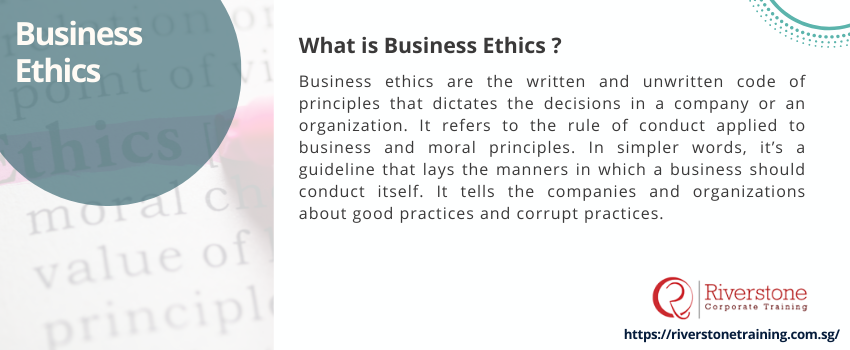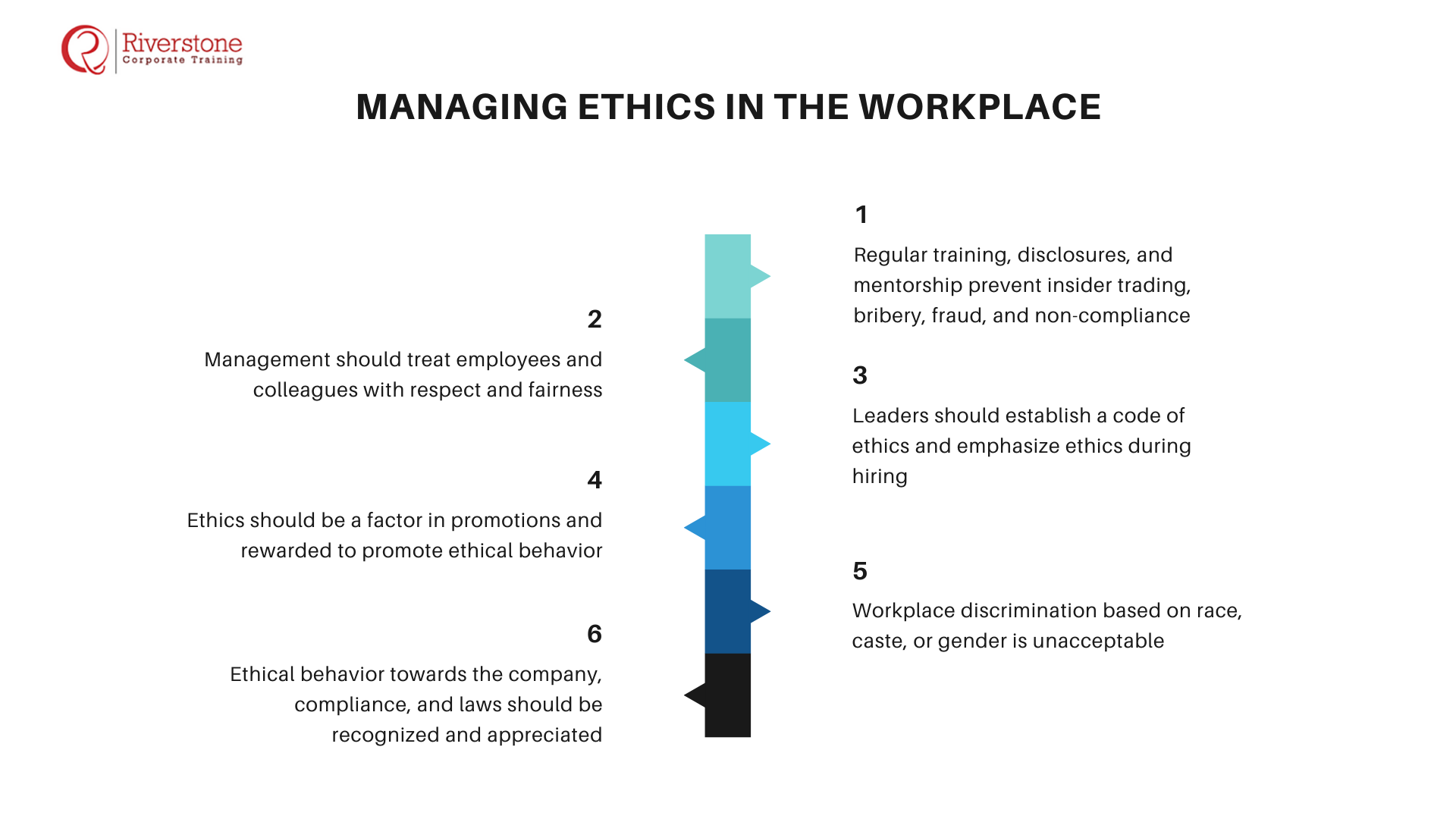
WHAT IS BUSINESS ETHICS?
Business ethics are the written and unwritten code of principles that dictate decisions in a company or organization. They refer to the rules of conduct and moral principles applied in the business context. In simpler terms, business ethics are guidelines that outline how a company should behave—highlighting both ethical and unethical practices. They ensure businesses operate responsibly, without engaging in exploitation or corruption. For companies looking to embed ethical standards into innovative frameworks, a Business model innovation course Singapore can offer strategic insights into aligning ethical conduct with sustainable, forward-thinking business models.
Business ethics makes sure the employees of an organization are treated well. It ensures the rights of the employees are not exploited. It protects the employees from the unethical intentions of the company. Business ethics require more than moral values — they also demand transparent financial practices. That includes how to analyze business segments for reporting, ensuring profits, costs, and impacts are honestly presented to stakeholders.
MANAGING ETHICS IN THE WORKPLACE:
It is essential to follow ethics religiously in workplaces to ensure stability and balance. Still, a majority of employees consider business ethics as the first or second attribute when it comes to workplaces. Every company or organization should follow business ethics without any breaches. Some of the common practices are
- Employees are not engaged in insider trading, bribery, audit fraud detection techniques Singapore, non-compliances of rules and regulations through regular training, disclosures, and mentorship.
- The management and the senior members of the company should appropriately treat the colleagues and understand the importance of employee training in Singapore.
- The leaders should create a code of ethics. While hiring, they should stress on ethics and behavior.
- Also, to promote ethical behavior, ethics should be a parameter in promotions. Moreover, ethical behavior should be rewarded.
- A company should not discriminate in the workplace based on race, caste or gender.
- The ethical behavior of employees towards the company, compliances, law, etc., should be appreciated.
SOURCES OF BUSINESS ETHICS:
Though many factors influence business ethics but most essential factors are religion, culture and law, every company considers this during recruitment. Every religion has its code of conduct. They believe in maintaining the social order and stress on social responsibility. Every religion has its version of right and wrong for businesses and all the other walks of life. Religions are the oldest source of business ethics.
Culture is another source of business ethics
Culture is nothing else but a set of ideas, preferences and morals. Culture, in general, is essential whether it’s society or a workplace. Culture shapes the working environment of a company. It also develops the personality and attitudes of individuals.
Law is also a source of business ethics
Every country, every state has to obey to the legal system. There are some laws that companies and organizations have to follow being a part of the country. The law protects all the rights of the employees. Also, it ensures that the company is not committing any breach like adulteration, tax evasion, poor quality, pollution and high pricing.
Business Ethics in Action: Navigating Ethical Dilemmas in Singaporean Companies
Ethical problems may emerge out of the blue in the ruthless environment of a business in Singapore. What happens in your company when a customer offers a present that is too good to be true, or a colleague learns that, another employee cheats? This material will touch on some ethical issues that local businesses tend to deal with including the struggle between making a profit and finding themselves in ethical situations to confronting the cultural norms that impact the relationships between them and their clients. We will discuss the frameworks that Singaporean professionals and companies can actually use to make ethical decisions and gain the clarity and estimable to make ethical decisions even in hard situations. Understanding business valuation in Singapore isn’t just about numbers—it also empowers professionals in Singapore to make ethical, informed decisions that balance profitability with integrity.
Beyond Compliance: The ROI of Strong Business Ethics for SMEs in Singapore
Business ethics may have been a dreamy term to the dynamic SME community of Singapore but it is indeed a very substantial investment! Moving beyond the requirement to be in compliance with the regulations and actually putting into practice ethical practices can bear fruit in big numbers. Just imagine: a reputation of integrity will allow attracting more loyal customers and the best talent at a lower cost of recruitment. The legal risks will be reduced and expensive scandals prevented, through ethical operations. Finally, good morals create a good working atmosphere, increasing the efficiency and innovativeness. In the case of the Singaporean SMEs, doing good does not only make business sense; it is ethical businesses and it leads to long-term successful existence. As ethical practices strengthen the foundation of SMEs, partnering with the right support system—like Singapore incubators for SME growth—can further accelerate their path to sustainable success.
Building an Ethical Culture: Leadership and Employee Engagement in Singaporean Workplaces
The ethical culture does not merely mean policies; the actions and the values that take place each and every day in a Singaporean working environment are what this is all about. This material will emphasise the fact that effective leadership creates a mood in the organisation, which will lead to integrity practised top-down. We will look at feasible ways of engaging the employees at all levels including developing a clear code of conduct that suits the needs of the diverse workforce in Singapore, the establishment of a working environment that encourages a free flow of information in which employees can express their concerns freely. When we create the environment in a workplace, where everyone feels empowered to maintain the ethical standards, we will get not only more trust and increased morale, but also stronger organization, which will survive better in the long run. To truly embed ethical values across all levels of the organisation, many Singaporean companies are turning to custom eLearning content development Singapore that delivers engaging, values-driven training tailored to their unique workplace culture.



